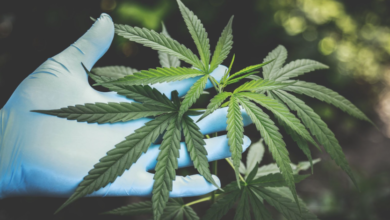How Long Do Cbd Gummies Stay Good for

The shelf life of CBD gummies can vary significantly, typically ranging from 6 to 12 months, influenced by several factors including ingredient quality and storage conditions. Proper storage is crucial to maintaining their freshness; gummies should be kept in a cool, dark place in airtight containers. Moreover, recognizing signs of spoilage—such as changes in color, smell, or texture—can be vital for ensuring their safety and effectiveness. Understanding these elements not only helps in prolonging the shelf life but also raises questions about how to best preserve these products for maximum benefit.
Factors Affecting Shelf Life
The shelf life of CBD gummies is influenced by several key factors, including ingredient quality, storage conditions, and packaging.
High-quality ingredients sourced from reputable suppliers enhance the gummies’ stability.
Additionally, a meticulous manufacturing process can minimize exposure to contaminants, further extending shelf life.
Consumers seeking optimal freshness should prioritize products with transparent ingredient sourcing and rigorous quality control measures in their production.
Read more: How Long Do Carts Last
Storage Tips for Freshness
Proper storage practices play a significant role in maintaining the freshness and potency of CBD gummies, ensuring they remain effective for as long as possible.
To achieve optimal conditions, store gummies in a cool, dark place away from direct sunlight.
Utilizing airtight containers also helps prevent moisture and air exposure, preserving their quality and extending their shelf life for a more enjoyable experience.
Signs of Spoilage
Identifying signs of spoilage in CBD gummies is crucial for ensuring safety and efficacy, as changes in texture, color, or smell can indicate degradation.
Look for color changes, such as fading or darkening, which may signal the breakdown of ingredients.
Additionally, texture alterations, like stickiness or hardness, suggest that the gummies are no longer fresh.
Regular inspection can prevent potential health risks.
Conclusion
In summary, the shelf life of CBD gummies typically ranges from 6 to 12 months, influenced by ingredient quality, manufacturing processes, and storage conditions.
For instance, a hypothetical case involving a manufacturer that utilized high-quality, organic ingredients and implemented strict quality control measures resulted in gummies that maintained optimal freshness for 10 months when stored in airtight containers away from light and moisture.
Regular monitoring for spoilage signs further ensures the product’s safety and effectiveness throughout its lifespan.




